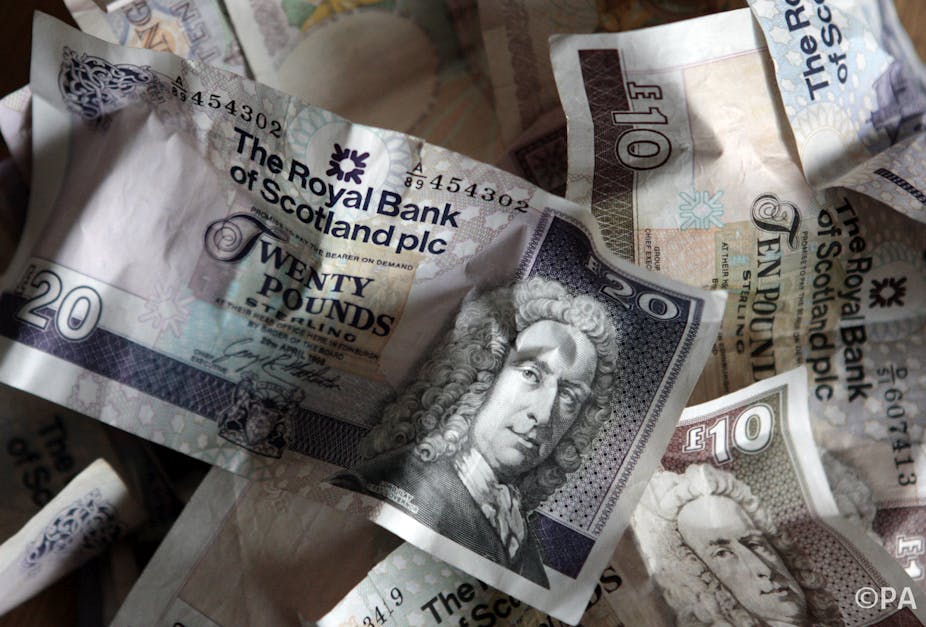The UK could be about to make a multi-billion pound mistake.
Plans to sell-off the 82% share of the Royal Bank of Scotland (RBS) and the 39% share of Lloyds owned by the taxpayer are gaining favour in both Westminister and the City. RBS has begun preparations for a sale by announcing 14,000 additional job cuts in an attempt to make itself look more attractive to potential investors.
But is this really a good deal for the UK? The taxpayer stands to lose billions, and evidence suggests the whole financial sector gains from the presence of publicly owned banks.
“Functional stupidity”, the idea that orgnisations make poor decisions due to a lack of flexibility and ignorance of contrary evidence, has infected both the government and the banks. This stupidity contributed to the financial crisis in 2008, and it is causing banks and government to ignore the evidence on bank privatisation today.
Key decision makers will not ask tough questions about these sales - we must ask them ourselves.
Waste of money? Too bad
The government is unlikely to recoup all the £45 billion invested in RBS if it sells its shares soon. Shares were originally bought for about £5 each. If they were sold at the current price of around £3, the taxpayer would lose £20 billion.
The government seems to be relatively relaxed about this scenario. This is because they assume the previous government made a significant mistake and overpaid for the banks. The implicit message is that the taxpayer needs to accept these losses – however large they may be.
Buy high, sell low
The second question is one of timing. Current thinking seems to assume that the share price of RBS and Lloyds will never return to pre-2008 levels, meaning the government will never be able to recoup the investment it made in both banks. Decision makers suggest it is best just to accept a mistake was made and then move on.
However, shares in the banks are close to the bottom of the market. One of the few reliable rules in economics is that markets go through cycles of boom and bust. If you are an investor, it is advisable to buy during low points (when assets are cheap) and sell during booms (when there are plenty of buyers and assets fetch a higher price).
The government seems to be doing the exact opposite of this. Buying the banks at a relatively high price at the end of the boom may have created some greater good (such as ensuring there was no run on the banks). But selling the banks now is likely to do little or no good – the main beneficiaries will be a relatively small number of people able to acquire public assets on the cheap.
Why sell at all?
The third question is whether the banks need to be reprivatised at all. The current article of faith is that banks belong in the private sector. The argument goes that market forces mean private sector banks are more efficient, profitable, innovative, have better customer service and create wider economic growth.
In contrast publicly owned banks are backwater of bureaucratic inefficiencies, political interfering and moribund service which slow down the whole economy. However, this assumption flies in the face of the evidence.
Public sector banks have been an important part of the broader ecology of banking throughout history. A review of evidence comparing public and private banks across the world found results on whether public banks slow the economy were very mixed. We just don’t know whether they can dampen economic activity.
The same review found that the presence of a public bank in an economy will tend to increase the efficiency of private banks and the population’s trust in the banking system as a whole (particularly following large scale financial crises). This means public sector banks can be an important mechanism for stabilising volatile economies.
On the other hand, private banks tend to be marginally more profitable than public banks. There is little difference between public and private banks in terms of lending to small businesses and other socially minded goals like encouraging development.
A “functionally stupid” decision
What all this suggests is that little will change if RBS and Lloyds are privatised. The two banks may become slightly more profitable, but the banking sector will likely become less efficient, and the system as a whole may become less stable and trustworthy.
What will certainly happen is that the tax-payer will be landed with a huge bill, a group of private investors will have acquired an asset on the cheap, and our banking system will be even more invested in one single business model which has proved to be prone to spectacular and costly failure in the past.

